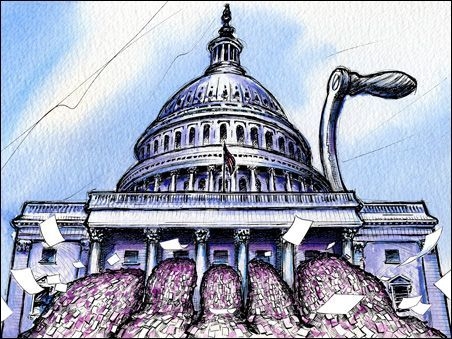HOS Criteria: What Is It, and Who Determines It?

In this round of rule-making, FMCSA sought input and comments from its Motor Carrier Safety Advisory Committee (MCSAC). The Secretary of Transportation established the MCSAC in September 2006, with the mission to provide advice and recommendations to the FMCSA administrator regarding motor-carrier safety programs and regulations. MCSAC membership comprises 15 experts from the motor carrier industry, safety advocates, enforcement, and a lone shipper. In February 2010, the committee forwarded a report recommending ideas the agency should consider in developing HOS regulations. The top six points included:
- The rule should be simple and enforceable, and compliance should be measurable.
- The agency should consider expert opinion, all available data, and feedback from HOS Listening Sessions.
- The agency should consider the appropriateness of a one-size-fits-all approach.
- Safety, not profit or productivity, should be considered first and foremost.
- A guiding principle should be how driver health relates to the safety of the public.
- The agency should consider total cost to the industry.
It is on this last item that the agency needs the most help from the shipper community. Of the 15 experts on the MCSAC panel, only one represented shippers; the rest of the committee was equally divided among enforcement, safety advocates, and representatives of the trucking industry.
By far the loudest and most emotional voices in the Listening Session comments came from the safety advocates. Some of these organizations were founded and led by parents whose adult children were killed in truck-related accidents. Other advocates came from traditional Washington, DC-based lobbying organizations.
The most numerous comments came from the trucking industry, both executives and drivers. While the executives were careful not to lay blame at the feet of the shippers, the drivers were quick to blame delays at shipper loading docks, and to cite them as justification for relaxed rule-making.
The only three shipper representatives took the floor in the February 17, 2011 Listening Sessions. The Commercial Bakers Association representative Nicholas Pyle {See Video - @ 32:45} provided comments best described as "light and fluffy." While his remarks were accurate, they lacked the data and compelling arguments the panel sought. Director of Government Affairs for the Food Marketing Association, Todd Kelley, {See Video - @ 71:40} made unsubstantiated claims that price increases and food shortages would result from the proposed rule. When asked by the panel for specific data that would substantiate his claims about price increases and shortages, Mr. Kelly admitted that he was new on the scene, did not understand trucking, and was not aware of any real data or modeling.
Right off the bat, one of the most compelling figures presented to the panel came from the vice president of safety at Schneider National. {See Video - @ 22:45} Schneider is one of the most technologically savvy truckload carriers in the market. They've been doing work with folks at Princeton to develop optimization for more than 10 years. They have the computers, the technology, and the brainpower to be able to take six months’ worth of actual load data, write the programs to simulate the new hours of service, and determine what the impact would be. Remember, they optimize the hell out of their network and are probably one of the most advanced at eliminating long-haul transport by substituting intermodal rail. Schneider predicts that their overall productivity will drop 4.23 percent. They project that the average driver impact will be a loss of roughly $3,000 in pay. They also don't see a reduction in crashes based on their data and performance.
What the administration needs most in the comments is hard data. If Schneider National is going to see almost a 5 percent reduction in productivity, you can bet that smaller carriers who lack the benefit of their high horsepower optimization, extensive training, and integrated intermodal services are going to see productivity decreases twice or three times as stiff.
If the shipper community cannot come forward with any data, the FMCSA will be left with little cost-impact analysis beyond what the Office of Management and Budget puts together.


